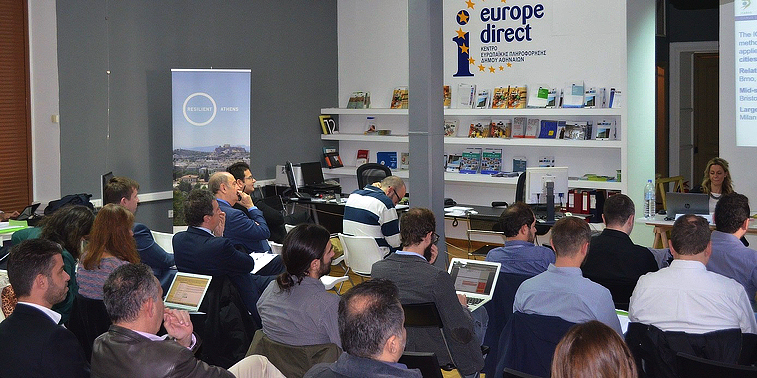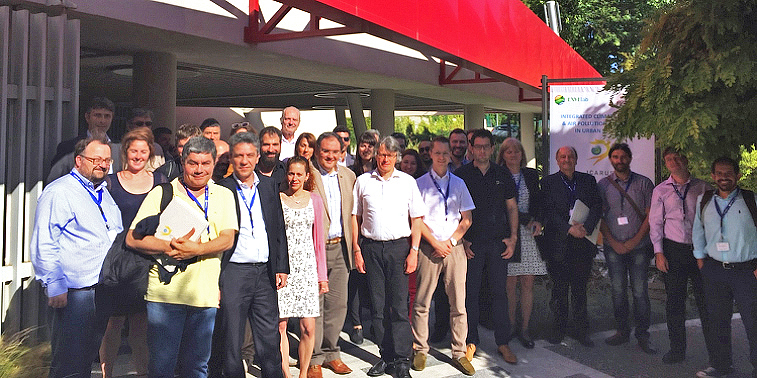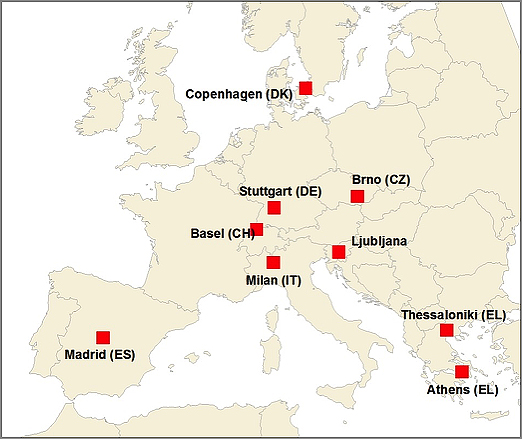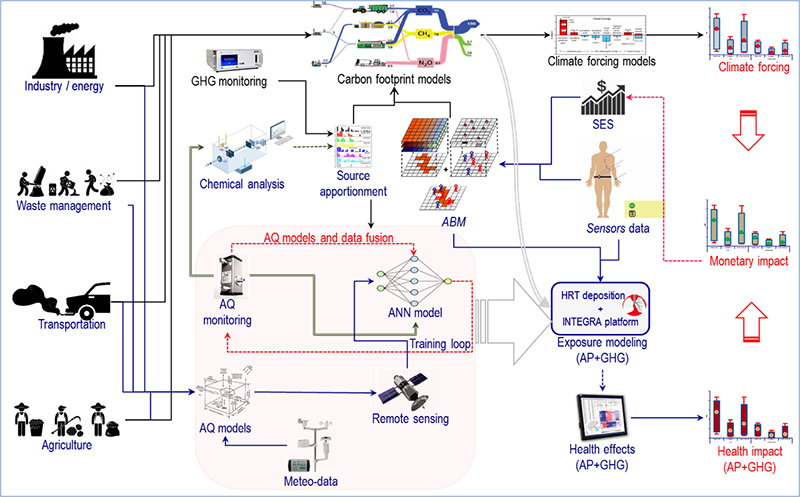The Integrating Climate Forcing and Air Pollution Reduction in Urban Systems (ICARUS) is a research project funded in the frame of H2020 program.
Its main objective is to develop integrated tools and strategies for urban impact assessment in support of air quality and climate change governance in EU Member States leading to the design and implementation of appropriate abatement strategies to improve the air quality and reduce the carbon footprint in European cities.
We will develop detailed policies and measures for air pollution and climate control for the short and medium term (until ca. 2030).
For the long term perspective (2050 and beyond) we will develop visions of green cities and explore pathways on how to start realizing these visions.
The specific project objectives are to:
- Quantitatively assess the impact of current and alternative national and local policies on reducing greenhouse gas (GHG) emissions and improving air quality through a full chain approach and evaluate the future public health and well-being impacts of these policies in European cities.
For each policy analysed the following effects/impacts will be evaluated:
- Change in emissions of air pollutants including life cycle emissions in/outside cities for selected activities.
- Change in emissions of greenhouse gases including life cycle emissions in/outside city (thus changes in the carbon footprint caused by changes in sectorial activities).
- Changes in ambient concentration of air pollutants and greenhouse gases.
- Changes in the exposure to air pollutants taking into account important indoor sources.
- Changes in the associated impacts on human health.
- Societal and economic impacts, including costs for the emission source operator and for other actors of society, including health impacts, time losses or gains and wider impacts.
- Demands regarding implementation of the policies with the consideration of indirect effects (e.g. changes in urbanization and land-use in the cities which support physical activity by extending cycling infrastructure and changes in modal split).
Evaluate (using source apportionment and atmospheric modelling) the current contributions of the different pollution sources linked to urban activities including heat and power use in the urban building stock, urban traffic and transportation needs, energy production, industrial activities including energy production, agriculture and trans-boundary pollution with respect to GHG-emissions, air quality loading, public health and well-being of the population.
Propose measures of technological (i.e. measures that will lead to a reduction of emissions at the source) and non-technological (i.e. measures that induce behavioural changes) nature to reduce both carbon footprint and air quality burden (win-win solutions). Techno-economic analysis of possible scenarios for the introduction of such measures will result in the definition of cost-effective environmental and climate protection and air quality management plans adapted to the specific needs of different EU cities and regions. The effect of these measures will be evaluated jointly taking into account the socioeconomic drivers related to the existing and projected scenarios.
Develop visions of green cities with clean air, close to zero or negative carbon footprint and maximal wellbeing, develop a pathway for the realisation of these visions in the next 50 years and propose first steps down that road in the form of a concrete plan towards achieving these visions in the participating cities.
Raise awareness of the citizens about the impacts on public health and the climate causes by their activities or with changes in their activities.
The results of the policy analyses will allow us to determine the most sustainable GHG mitigation and air quality (AQ) improvement strategies. The latter will be proposed to the authorities competent for atmospheric pollution and climate protection management and to the main industrial end-users as guidance for decision-making that would lead towards maximizing the net public health and wellbeing benefits while taking into consideration the costs associated with air pollution and climate change in the EU.
The project methodology will be applied in nine European cities of variable size starting from relatively small (Basel, Brno, Ljubljana) to mid-size (Stuttgart, Copenhagen, Thessaloniki) to large cities (Athens, Milan and Madrid). They have been selected carefully to represent the mix of urban settings around Europe and cover the whole spectrum of “green urban management”.
The ICARUS Consortium is made up of 19 Partner Institutions from 10 European countries all with multidisciplinary expertise and experience in intersecting and complimentary research in research areas related to the climate and the environment and their interactions with health and wellbeing.





